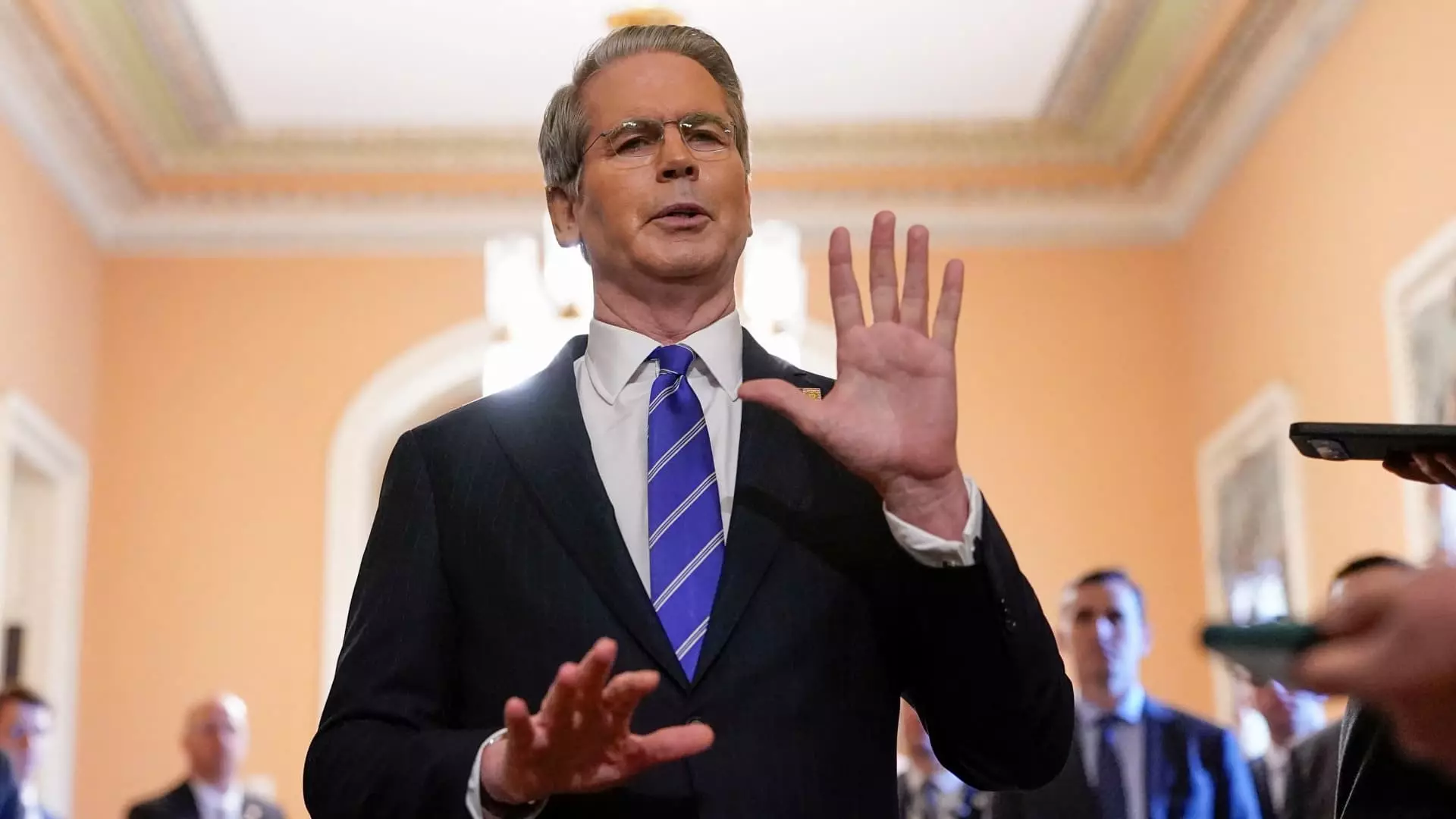In recent weeks, the US government has projected an air of calculated patience regarding the looming implementation of tariffs scheduled for August 1. Treasury Secretary Scott Bessent’s pronouncement that the tariffs will take effect unless trading partners accelerate negotiations masks a deeper reality: a fragile game of diplomatic brinkmanship that threatens to destabilize global markets. While officials claim this is merely an adherence to procedural deadlines, the underlying message is clear—this is a leverage tactic, not a genuine commitment to free trade. Such posturing overlooks how destructive these tariffs are, not only to international relations but also to American consumers and small businesses caught in the crossfire.
Deception in Diplomatic Negotiations
The administration’s narrative suggests that tariffs are a tool to hasten fair trade agreements, a premise that deserves skepticism. The repeated delay and bluster serve more to provide political cover for hardline protectionist policies than to foster mutually beneficial deals. Bessent’s statement that the tariffs could revert to “April 2 levels” communicates an unsettling message: the United States is prepared to rollback tariffs temporarily, only to impose them in full force if negotiations falter. This dance of deadlines and warnings creates a toxic environment of uncertainty, discouraging long-term investment while emboldening adversaries to stand their ground or even escalate their own tariffs. The strategic ambiguity masks the fact that these policies often serve political expediency rather than economic necessity.
The Myth of a Peaceful Resolution
While Trump and his administration hint at impending trade deals, these promises ring hollow amid mounting tensions. The White House’s refusal to clarify the status of negotiations fuels doubts; are these tariffs a genuine effort at reform or mere political theater ahead of election cycles? The suggestion that “several big announcements” could arrive soon seems more like a smokescreen designed to suppress market anxiety than a plan rooted in substantive progress. Moreover, the timing—coinciding with the expiration of the 90-day tariff pause—exposes how little confidence the administration places in constructive diplomacy. Instead, it appears to favor punitive tariffs as a means of coercing allies, a strategy that risks alienating vital trading partners and sacrificing America’s credibility on the world stage.
The Price of Political Posturing
This aggressive tariff posture fails to address the broader economic consequences that ripple through global supply chains and American households. Consumers will face higher prices, and manufacturers may see increased costs that stifle innovation and growth. Meanwhile, the international community views these threats as shortsighted and unilateral, damaging years of built-up diplomatic trust. The real tragedy is that in an era where global cooperation is more essential than ever, the US appears intent on self-isolationist tactics that threaten to undermine the very principles of shared prosperity. If these tariffs are implemented as threatened, it will mark a clear departure from a mature, balanced approach to economic diplomacy—one that recognizes the importance of multilateral agreements over petty political tactics.


Leave a Reply